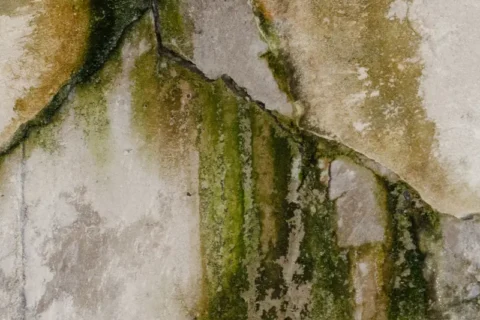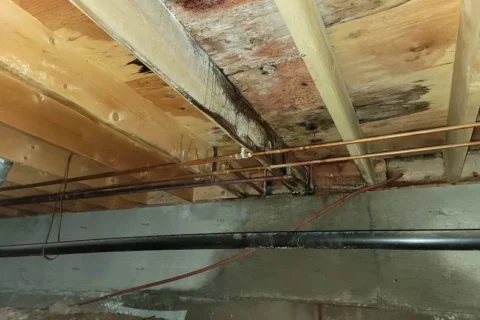Cinder Block Foundations vs. Poured Concrete
Block Foundation vs. Poured Concrete
When you’re building a new home, the foundation is quite literally the bedrock of your structure. Two of Southeast Wisconsin’s most common foundations include block and poured concrete. Both have pros and cons that may alter your decision. Let’s settle the block foundation vs. poured concrete debate by exploring each option in depth.
What is a Poured Concrete Foundation?
A poured concrete foundation is the traditional method of creating basement walls. It’s made by setting up wooden forms and pouring concrete into them in one continuous process. Once the concrete cures or hardens, it forms a solid foundation. This method is popular in both residential and commercial construction.
Benefits of Poured Concrete Foundations
- Speed: Poured concrete is faster to install than block foundations since it involves fewer steps and less hands-on labor.
- Strength: It offers excellent density and superior lateral strength for resistance against soil pressure and water intrusion. Rebar is also often installed in poured concrete footings to limit weak points.
- Seamless construction: Since the concrete is poured in one go, there are no joints, meaning fewer chances for water leaks and cracks to form.
- Ease of waterproofing: The smooth surface of a poured concrete foundation makes it easier to waterproof than a block foundation, which has mortar joints.
Cons of Poured Concrete Foundations
- Cost: Poured concrete tends to be more expensive upfront due to the need for specialized equipment and labor.
- Transportation difficulties: Getting wet concrete to the job site can be tricky, especially if the area is hard to access.
- Cracking: While strong, poured concrete can develop cracks, particularly if it isn’t cured properly or the soil shifts beneath it. Water leaks can occur through these cracks.
- Spalling: If poor curing conditions cause the concrete surface to peel, crumble, or flake, this may indicate that the foundation’s strength is compromised.
What is a Block Foundation?
Block foundations use concrete masonry units (CMUs), also known as cinder blocks, to form the foundation walls. Standard blocks are typically 8 or 10 inches wide by 16 inches long and can be hollow or filled with reinforcing material like rebar and concrete mix for added strength. The blocks are stacked on concrete footings and secured together using mortar for the joints.
Pros of Block Foundations
- Versatility: There are no forms to configure like those needed for poured concrete projects, meaning block foundations can be customized for different load requirements.
- Cost-effectiveness: Blocks are generally cheaper to install than poured concrete, particularly for small-scale projects or homes with crawl spaces.
- DIY potential: Unlike poured concrete, a block foundation can be built without heavy machinery and a crew of experienced workers. This makes it possible for DIY enthusiasts with masonry skills to tackle their own foundation construction project.
- Strong vertical support: When correctly reinforced with rebar, block foundations offer excellent compressive strength and are able to support heavy loads from above.
Cons of Block Foundations
- Labor-intensive work: Laying a block foundation is time-consuming and labor-intensive. Each block weighs 36 to 42 pounds and must be handled one at a time. Training is also needed to ensure proper alignment and mortar work.
- Water intrusion: The joints between blocks make this type of foundation more prone to leaks, particularly if not properly waterproofed.
- Weaker lateral strength: Block foundations are more likely to bow or crack under pressure from soil or water, especially if they aren’t fully reinforced with rebar. This may require crack repair, wall bracing, and other work to restore the foundation’s structural integrity.
The Importance of Waterproofing
Choosing between a block vs. poured concrete foundation depends on whether you’re most focused on the cost, time, or long-term durability. No matter which foundation you choose, proper waterproofing is a must.
Moisture is the enemy of any foundation. It can lead to cracking, leaks, and even structural failure. Make sure your foundation is properly sealed with a high-quality waterproofing system. Your investment will extend the foundation’s lifespan and help prevent problems like water seepage, mold growth, and poor indoor air quality.
Trust the Experts for Your Foundation Waterproofing Needs
Everdry Waterproofing of Wisconsin has served the Greater Milwaukee area since 1989, helping over 100,000 customers protect their homes with our patented, 100% effective waterproofing methods. We offer free, no-obligation inspections and provide the information you need to make informed decisions about your home. Everything we do is backed by a lifetime transferable warranty, meaning we promise your home will always stay dry. Contact us today to learn more about our services or request a no-pressure estimate.
Ready to Get Started?
Contact Us Today to Schedule a No Pressure, No Obligation, Free Quote!


